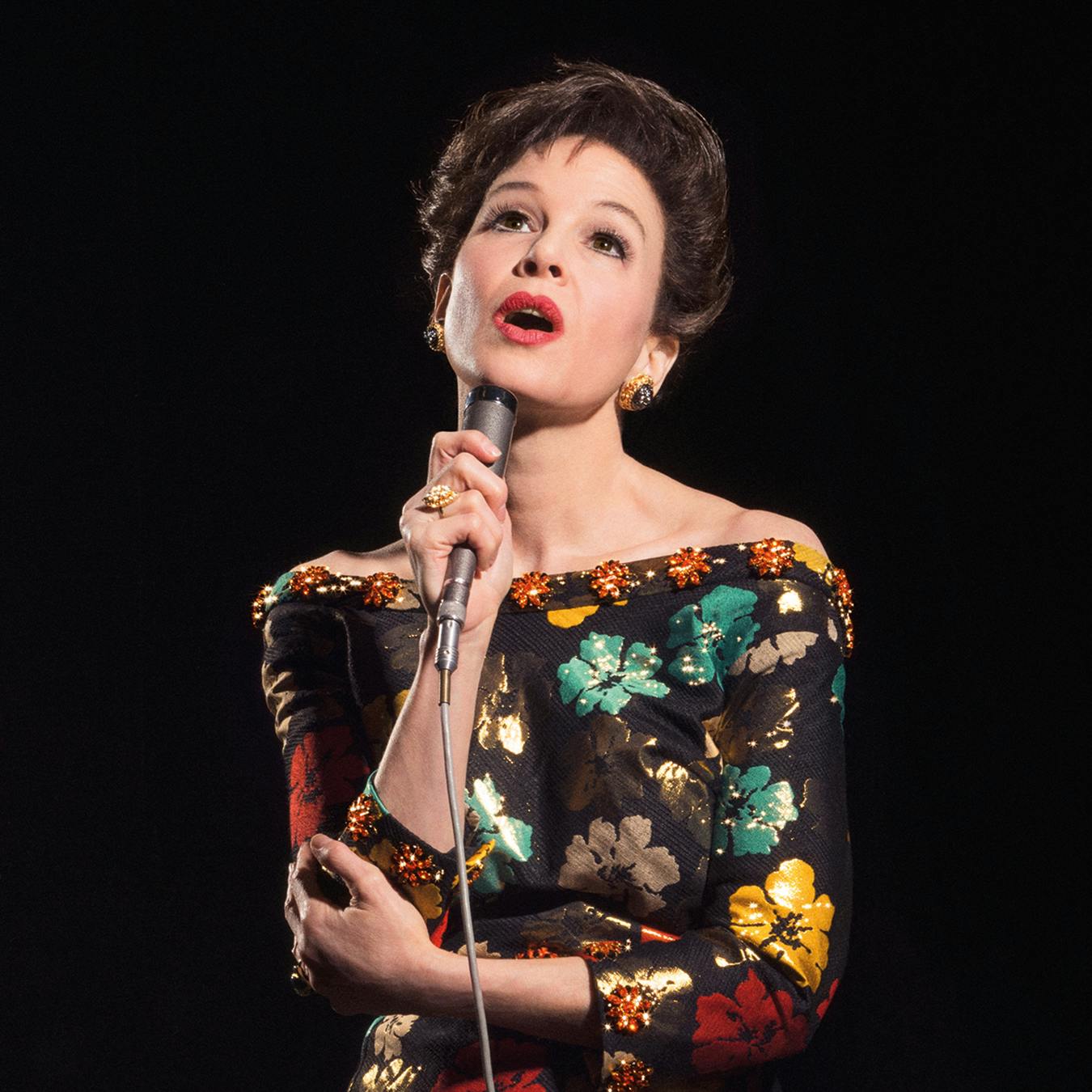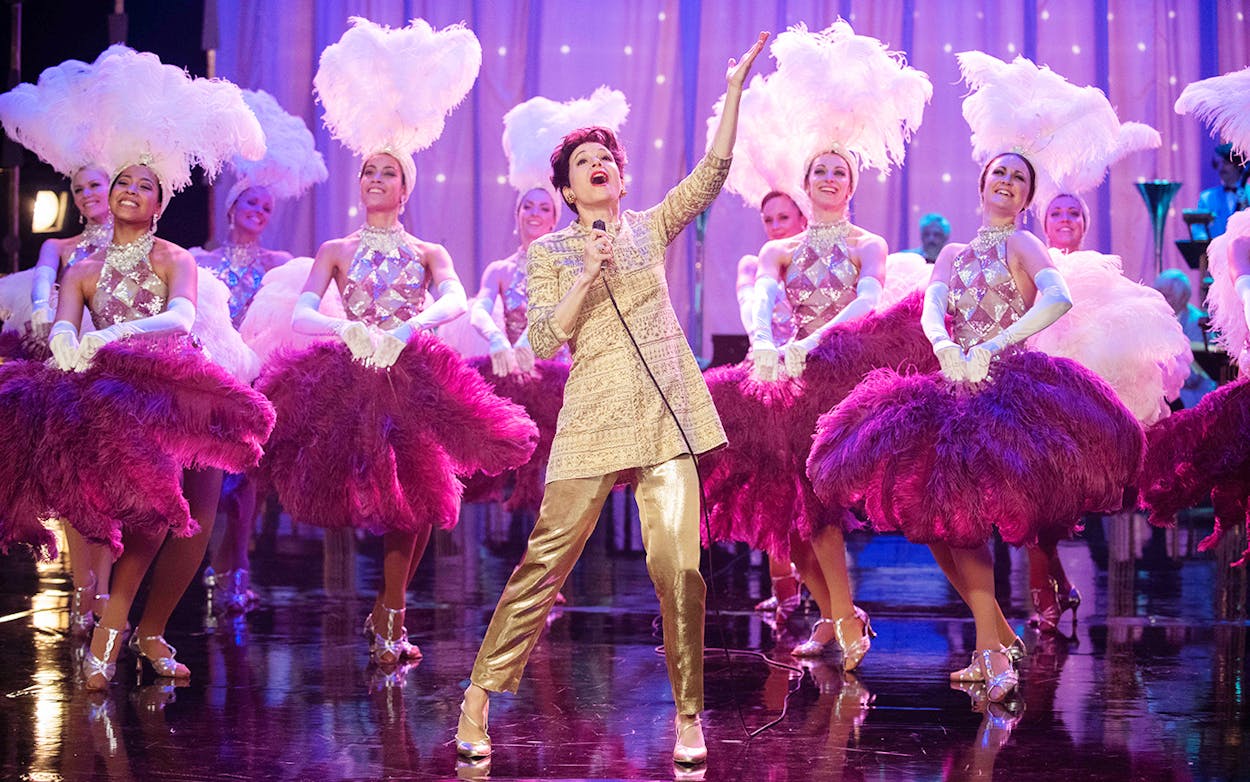Here’s the thing. Despite what the academy tells you, biopics aren’t good. They’re trope-y, formulaic, and even with top-notch performances by A-list stars, they’re never better than what their subjects achieved during their actual lifetimes. Sure, Joaquin Phoenix was great in 2005’s Walk the Line. But when was the last time you watched that movie? And wouldn’t you rather just listen to Johnny Cash?
Enter Renée Zellweger as Judy Garland. The Katy native is already getting Oscar buzz for her performance in Judy, which opens this Friday, September 27. It’s the newest in a long line of Judy Garland biopics of varying quality, including a bland 2001 TV miniseries that follows the legend from the cradle to an early grave. Adapted from the Broadway play End of the Rainbow, the new biopic focuses primarily on the entertainer in the last year of her of life. The film got a standing ovation at the Toronto International Film Festival this month, and words like “revelation” and “complete transformation” have been thrown around.
And the critics aren’t wrong. As a lifelong fan of Garland’s films and music, Zellweger brings everything to her role in Judy. Zellweger’s physical transformation is the most immediately noticeable; her body slumps with Judy Garland’s trademark spine curvature (Louis B. Mayer used to call Garland “my little hunchback” during her MGM child star days, a sorry excuse for a term of endearment that is oft-cited in explaining her well-documented struggles into adulthood). A vision, Zellweger almost glows with exhaustion as Judy did, after decades of emotional, physical, and professional nadirs and just as many comebacks.
I did see one headline that points out an obvious critique: “Judy would be a great film, if Renée Zellweger had a better singing voice.” I don’t know if I agree entirely. In my mind, the only way Judy would be a great film were if Judy Garland were playing herself. Since’s the story is set during Judy’s 1969 run of shows at London’s Talk of the Town Theater, musical performances are a crucial part of the narrative. Zellweger does a fine job with her renditions of hits like “Come Rain or Come Shine” and “The Trolley Song.” But the film is predicated on the idea that what made this entertainer more special than everybody else was “the voice” (as a towering, scary Mayer tells a young Garland in its opening scene), and it takes you out of the narrative to see musical numbers that are just fine. When it comes to Judy Garland, that’s not good enough.
I know this because I am a Judy Garland superfan. I have a DVR full of Andy Hardy movies, and out of loyalty I will not say one nice thing about Bradley Cooper and Lady Gaga’s remake of Garland’s A Star Is Born. I didn’t doubt that Renée could deliver a moving portrayal of a woman the entertainment industry chewed up and spit out, but emulating the Judy Garland is a much bigger ask.
Even at her lowest, Judy Garland had an inimitable talent. I’m not just talking about hitting the notes; the vaudevillian vibrato is easy enough to mimic. I’m talking about the fire in her belly that propelled it, an almost superhuman showmanship that carried big-budget pictures and fueled a supposedly past-her-prime Carnegie Hall performance later hailed as “the greatest night in show business history.” A couple years before that performance, Judy got hepatitis, had several quarts of fluid drained from her body, and was told by doctors that, should she live, she’d be a semi-invalid and would never sing again. Carnegie Hall is how she responded; that’s the entertainer we’re dealing with. Icons become icons for a reason.

On the surface, Judy knows how to handle the legend. One of the best lines in the film (if one of its cheesiest) comes from a gay man who meets our hero after one of her performances, telling her he can’t quite explain it, but her voice seems to “bypass the ears and go straight to the heart.” Judy’s ability to imbue emotion into her songs, something she’d been doing since childhood, is one of her most notable qualities. It’s what set her apart from the other Gumm sisters on the vaudeville circuit, what her mother exploited to get her a film contract, and what turned Frances Ethel Gumm into Judy Garland. That ability kept a young Judy Garland on MGM’s payroll despite the fact that she lacked the svelte glamour then required of most Hollywood starlets (something she was made aware of constantly during her childhood there).
Judy alludes to all of these tentpoles in Garland’s story and the lore surrounding it. “the voice” is acknowledged as the origin of her trauma and addictions, and what both facilitated and destroyed intimacy in her life. It’s what made it impossible for her to be there for her children in the way she longed to, and what simultaneously brought her all her other “children” (her fans). Still, the film does this without showing us a voice worthy of this devotion.
Ultimately, Judy is less a formulaic biopic than it is a character study of the woman behind the icon. By focusing on one very specific time in her life, early 1969, and using flashbacks from her childhood to fill in the gaps, Judy doesn’t attempt to squeeze 47 years into two hours. It meets Judy where she was, and tells a simple story that can speak volumes. While it doesn’t veer much from the familiar narrative of the troubled former child star, it does shine a light on an era of Garland’s life that’s likely unfamiliar to those who don’t typically imagine her past the Meet Me in St. Louis years.
Zellweger’s Judy is realized, nuanced, and layered. She is loving, hateful, charming, and pitiful, with violently conflicting instincts to both survive and self-destruct. Even though it’s never not apparent that you’re watching Renée Zellweger as Judy Garland, she feels like a real woman, not a caricature. The same can’t be said of other Judy biopics, even the 2001 TV miniseries that won Judy Davis an Emmy and a Golden Globe for the role.
But Judy is still a biopic, and it doesn’t come close to being as entertaining as a Garland movie, or as thrilling as the Carnegie Hall soundtrack, or as heartbreaking as the drunken tape recordings she made during the last years of her life. Of course, the academy won’t care about that. I’ll be neither surprised nor annoyed if Zellweger brings home her second Oscar for this role and ushers in a much-welcomed Renéessance. She’s as good as everybody says she is, but she’s no Judy Garland.
- More About:
- Film & TV
- Film
- Renee Zellweger








